
Chapter 8 – The Buxton Vision – Pastor Lawrie Cottam: Farmer, Sailor, Preacher
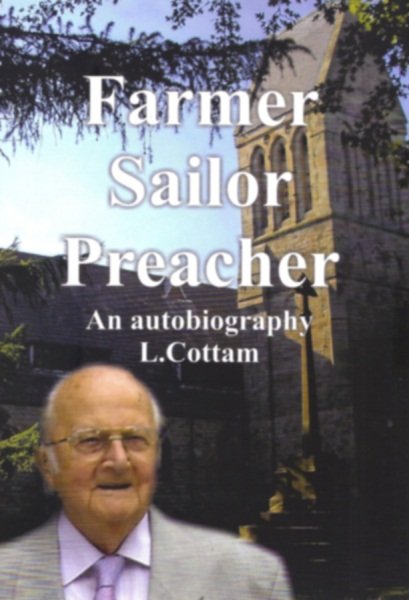
We now had a regular routine, preparing food on Saturday night and setting off to Cadishead church early on Sunday morning. The old assembly welcomed us with open arms. Grandma and Granddad Westbrook were so pleased to see us and we made sure we left ample provisions to last them through the following week.
At this time I was employed driving a tarmac wagon on piece work, making a very good wage. This meant that every night when I got into bed I slept soundly. Nancy and the girls joked that they could strip the bedroom and redecorate it and I would not wake up, but one night something very unusual took place. Now I had never been one to claim visions or dreams, or even hearing voices, but I do believe in divine guidance. Paul is clear proof that the Lord does direct people through dreams or visions. That’s how Paul got the call to Macedonia. He actually saw a man and heard that same man say, “Come over and help us.”
Well, one night, or shall I say early morning, at about 3 o’clock, I woke up and sat up in bed wide awake. The first thought that came to me was, why I had woken up. I wasn’t ill. Then on the blank wall at the foot of the bed a picture of a stone church with a high apex roof appeared. There was an opening in the gable end and Nancy and the children (all six of them) were standing in the opening. Paul had a hammer in his hand. Mark had a plank of wood. Quiet Sylvia was standing holding a tray of tea cups. They were all smiling. The Lord spoke to me and said, “I’m going to give you this church. You will build living accommodation for yourself and you will restore this Church and be the guardian of it or the rest of you natural life.” I was absolutely amazed as I sat looking at his strange life-like picture. It just faded away. I could not get back to sleep again.
I was on an early shift the next morning, so I phoned the quarry about 4 o’clock and told them I could not go into work, because a domestic emergency had arisen. They said it was ok and that someone else would drive my wagon that day. When Nancy woke up, she asked me why I had not gone into work. After Marlene and Naomi had gone into the store and Sylvia to the factory and Rhoda to her school, I first told Nancy about the vision. Then we went into the store and told Marlene we were going out for the day and we might be home late.
After filling the car up with petrol, we set out looking for this stone church. You see, I had never had a vision, so I went to all the places where I had preached and to places where I thought we might find it. By dinner, we were in the Widnes area. I called in at Jim and Gladys Holland’s house about 12 o’clock. They invited us to have some dinner with them. After dinner I told Jim about my vision. He sat for a while and then said slowly, “Lawrie, you are so sensible and practical. I believe you have had a genuine vision, but my advice to you is to stop this searching for the Church. The Lord will prove that your vision is genuine by showing you this church at exactly the right time. You see, Lawrie, Joseph’s vision took the best part of twenty years to be fulfilled. The Lord could show you this church tomorrow, or it might be in several years time.” I received this advice from Jim Holland, but naturally I wanted the Lord to show it to me sooner, rather than later.
A few weeks later, on Saturday morning, about dinner time, we were all going down the A6 road to Cadishead to visit Grandma Westbrook. We stopped at the traffic lights in the Denton area, when Nancy said, “There’s a man over there in a green mini. He is signalling you to stop.” It was Ernest Anderson. We both parked up and walked back to the lights. He said, “You’re just the man I want to see. I’ve just come from the district counsel meeting. We have been talking about you and your family. There’s a small church in Swinton, called the Mount of Olives, that’s just on the point of closing down.
We think you would just be the right family to take it on.” I silently thought, ‘Oh no-not Swinton’. Ernest asked what I thought of the idea and I told him I’d put it to the rest of the family, who were all in the car. Through the window of the car I explained to the children what Pastor Anderson had suggested and within a split second, in one voice, they all said, “Let’s go to Swinton.”
Now to the Christian reader, this doesn’t sound very spiritual, but it’s exactly what took place, so to cut a long story short, I went that same day to Bollington to see the chairman of the district council, Glyn Thomas. Together we went to Central Drive, Swinton, to see John Bell, the secretary of the Mount o Olives. He invited me to start a six week trial. After one week, John said, “Scrap the trial. Buy a house and come and live in Swinton and be the pastor of the Mount of Olives.”
This presented us with another problem. How was I to get a house and a job in the Swinton area? How were Marlene, Naomi and Sylvia to get jobs too? Well, the Lord started to work another miracle. First we started travelling down to Swinton each Sunday morning, bringing a supply of food. Sometimes it was a big Dixie, full of stew. Winter was coming on and travelling back we experienced fog late on a Sunday night. So, I applied for a job with my old manager at Cadishead Transport Depot, still working for Tarmac. He told me there was absolutely no chance at all of a vacancy for me, since he only had 12 wagons now, but the Lord works in wondrous ways when He wants to accomplish something.
This is what transpired; a driver came into the depot under the influence of alcohol and was given a warning by the manager. Subsequent to this, he came in worse for wear again. The manager was sure he would take heed to the second warning, but not so. The very next week, he was again under the influence of drink, so the manager was forced to sack him.
He phoned me up straight away and said, “Turn your wagon in at Water Swallow’s and come here and start in the morning.”
This I did and began to lodge at Grandma Westbrook’s house. Marlene was such a good worker for Roseman’s that they offered her the manageress position in their florists shop in Whitefield. Now all I had to do was find a house and that same week I bought a Swinton newspaper. There was a house for sale in Sefton Road, so I walked up the path and said, “I want to buy your house.” “You’re too late,” said the man. “I’ve just sold it. I’m going to emigrate.” I asked him who he had sold it to and he told me he’d sold it to a man who lived just round the corner in Station Road, only about 75 yards away. I thanked the man and went round the corner. I knocked on the door and told the man there that I’d like to buy his house. “How on earth did you know I was selling my house? I haven’t told anyone yet.” I just smiled and explained that I’d assumed he’d be selling, since I’d been talking to the owner of the house he was going to buy.
So, I was invited to have a look around and after agreeing on a price, the owner said he could be out within the week. So, that’s how I came to move to Swinton. Within about two weeks, I was working at Cadishead Tarmac depot and Marlene was the manageress of Dingle’s Store at Whitefield. Sylvia got a job at Dorma bedding and Naomi started work on the check out at Asda. We all began the restoration of Swinton Church.
Swinton Burnt Out
As a family, we set to and started refurbishing the church. We scrubbed and painted and generally smartened the church up. The members of the assembly took heart and things began to look up, in fact several members who had left the church, returned. After we had redecorated the church, the district council sent little Pastor Barrett and Joe French to visit us mid week, to listen to me preach and to have a look at the church. They commented on how beautiful the church was and how things had certainly picked up. That was mid week. On the following Friday night, Nancy and I decided to have a break and go over to Cadishead to see Pastor Morgan. As we sat in his living room, drinking coffee, the telephone rang and Auntie Alice answered it, saying it was for me. Marlene was in tears as she said, “Oh Dad, come home. The church is on fire.” I flew to Swinton as fast as I could.
When we arrived, the street was full of people and two fire engines. White foam was pouring out into the street. The window had gone, but the roof was still intact. The superintendant of the fire service said it had been caused by an electrical fault, but I disagreed with him. I was always the last person to leave the church and I switched off the gas and the electrics. On further investigation, we found that vandals had used white spirit and paint in several places. They were two local boys; one of them was member of our assembly.
As I looked at this burnt out mess, I prayed for the Lord to give me a cheerful spirit and that’s exactly what He did. We swept an area in the centre of the church and then I took the large, turquoise carpet square out of our front room and put it in the centre of the church. We cleaned some chairs and on the Sunday morning we held our communion service around this blue carpet. As we finished, in came a Salvation Army officer, Mr Williams. He said that we could go to their citadel each Sunday morning where we would preach in turn, until we got the church sorted out. Then, in came another man and said, “You can hold your mid week services in our Saint John’s Ambulance rooms.” This we did. I will always appreciate what those two men did for us.
The Ansvar insurance company were very good, but oh, what a picnic I had with the builder. He had too many jobs going at the same time, with only four workmen and one of them was an alcoholic. My two sons, Mark and Paul and myself had to finish off the work, restoring the church, but we took this opportunity of turning the church around completely. We built a proper church entrance, in the form of a double door porch, so really after the fire the church was indeed a better place. In order to be more reliable and to have more time for the church, I left Tarmac and took a job as a caretaker in a remedial centre in Victoria Park, Swinton. One difficulty was the fact that I had to go late, every night, to close the windows, set the alarms and generally secure the centre.
I was wondering what to do, when the superintendant of the centre came to me and said, “Lawrie, I believe you can write poems. Will you write one about the centre so I can put it in the monthly magazine?” I agreed. So, I wrote one about every hobby that was catered for in the evening classes: gardening, soft furnishings, the choir, the art class, the drama class, the fibre glass. In the last verse I wrote about myself as a heavy goods driver, not having to worry about the fog and going over Wood Head in the ice and snow. The superintendant of the parks department bought a copy of this magazine and when he read the poem he sent for me. He asked if I still had an HGV licence and what vehicles I could drive. I told him I could drive ‘anything with wheels and a steering wheel!’ I could drive any wagon, bus, road roller, tractor, JCB, boat or winch.
He said, “I’ve got a proposition for you. If you will work for me as a floating driver, that is; you will drive any kind of vehicle at any time, anywhere; I’ll give you top grade.” So I said, “I’ve got a proposition for you. I will work at any time, on any emergency, even if it’s out of hours – in the middle of the night, or when a certain football match is on. I won’t book any time at all, but in return, you will agree to let me have time off if I need to take a funeral, a wedding or to visit someone in hospital. I give you my word that I will not abuse this arrangement.” So, we had a deal and shook hands. I agreed to work for him on these conditions.
When I informed the superintendent of the remedial centre that I was leaving, she offered to give me a big increase in wages, saying that I was the best caretaker she had had. She told me she could rest in peace, knowing that I could be trusted at all times. Now, the reason I have laboured this, is to point out that a Christian should be a hard working and trustworthy person. It bodes well for the Christian testimony.
One sunny evening, after I had worked for the council for a few years, I was going to take a group of people to hear an evangelist, in Manchester. Marlene was sitting in the passenger seat, alongside me. I pulled onto the petrol station forecourt, when suddenly in my arms and across my chest, I had these pains. I could not reach out my hand the 24 inches, to the dashboard, to switch off the ignition. Marlene said, “Dad, you look awful.” I told her to come round and open the door for me. I then slid down off the seat and shuffled around the back of the bus. Marlene opened the back doors and helped me up. I sat alongside an old man called Mr. Gladman. He put his hand in his pocket and pulled out a small brown bottle. “Here, take one of these, under your tongue. You’ve had an angina attack.”
Marlene filled the bus up with petrol and drove it back to our house in Station Road. She opened the front door to let me in, and then I told her to drive the minibus to Manchester. I was going to go to bed.I slowly went up the stairs, took off my shoes and my tie and undid my belt. I lay on the bed, looked up at the ceiling and simply said, “Lord, I can’t die tonight. What about the vision you gave me at Buxton?” Then I went to sleep. Marlene returned home about 9.30p.m. I had a cup of tea and went to sleep again. The next morning, I went across the road to the surgery of Doctor Brown. I told him what had transpired and he said, “Man alive! You could have died last night. What on earth possessed you to do a thing like that?” He sent me to Hope Hospital.
There they wired me up and gave me another cardiograph, after which they told me I had had a heart attack. They gave me white tablets and pink Beta Blockers and told me I was not to lift anything heavier than a tape or a book. Then the doctor sent me to a dietician, who gave me a diet sheet. I had six months resting, then I persuaded the doctor to let me return to work. After five days, I collapsed over the controls in my JCB, so there followed another few months resting.
During this time I did something which I hesitate to tell you about, in case you think I’m setting a precedent for you to follow. I am not. I believe every person must only do what they think the Lord wants them to do and it is wrong for one person to legislate for another. I decided to stop taking the tablets, so I disposed of them. After about two months, I went to the doctor for an examination. He told me I was doing fine and gave me a prescription to buy more tablets, which I reluctantly did. I disposed of them and never told a soul about it.
After a further month, I went to the doctor and said, “I want to go to hospital and have a test.” He told me there was no point doing that, since he already knew what was wrong with me and he didn’t think I’d ever work again. However, I persuaded him, so off I went. I was wired up and put on a running machine.
The operator advised me that he was not concerned about me puffing and blowing (because I was out of condition), but was concerned about me being in pain. At the slightest sign of pain I had to nod my head and the machine would be stopped. I did puff and blow, but had no pain, so the speed of the machine was increased. Then the treadmill was elevated and again made to go faster. Eventually, the machine was stopped and I was asked if I was sure I had no pain. I told him I had no pain at all, so he said, “There’s not much wrong with you.” And I was discharged.
Now I had a problem. You see, I had promised the Lord that if He healed me, I’d go full time as a Pastor, even though the church offerings were not sufficient to support me. Well, one girl said, “I buy far too many clothes. I’ve got a wardrobe full, so I’ll put the money in the offering.” Another said, “I buy records I don’t need. I’ll do the same.”
Then I got a phone call from a pastor who had been offered a pastorate in an American church in Mississippi. He asked if I would be kind enough to fulfil all the engagements that he’d made, preaching at different churches, and I agreed to do it. I went full time. First of all, I went down to the Social services department and asked them to tell me the most money I could receive per week, from a church, without paying tax.
That figure became my weekly pay and I have never paid one penny tax from that day to this, but of course it was a very small wage.


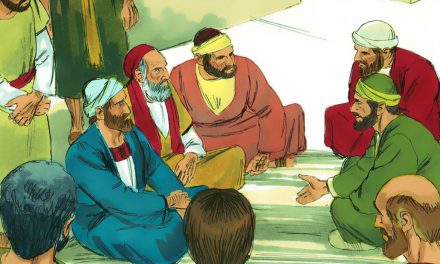

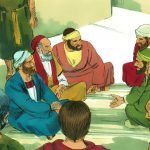

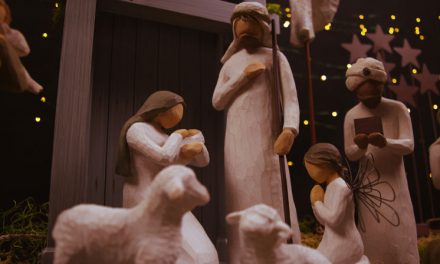



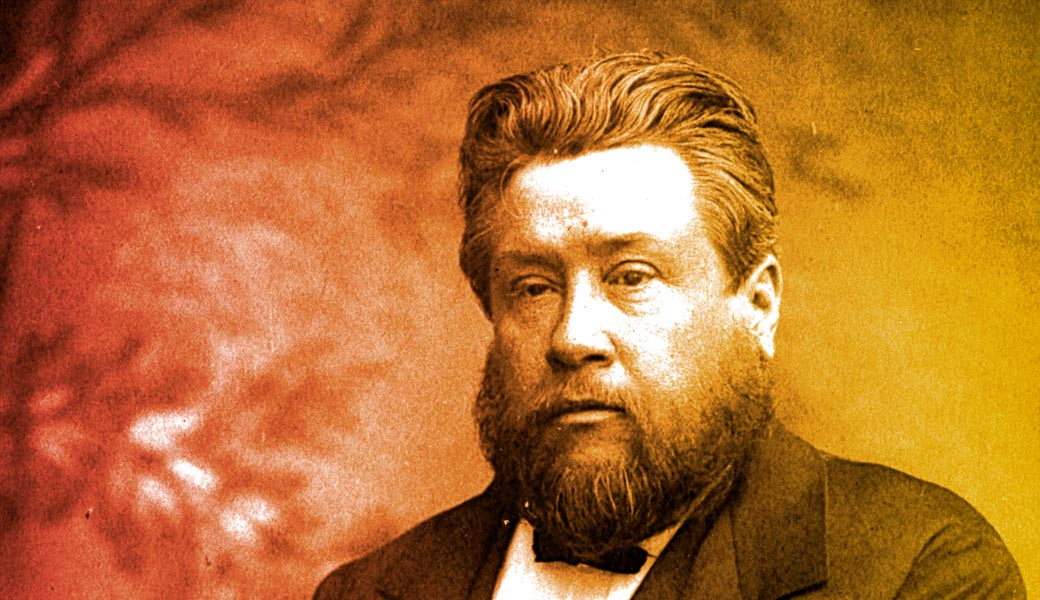

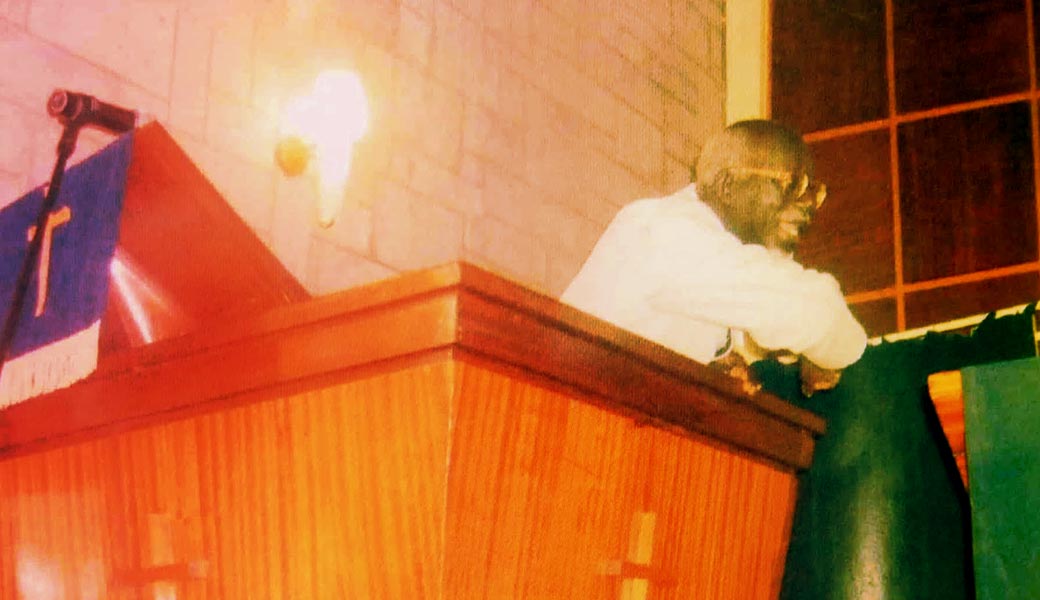


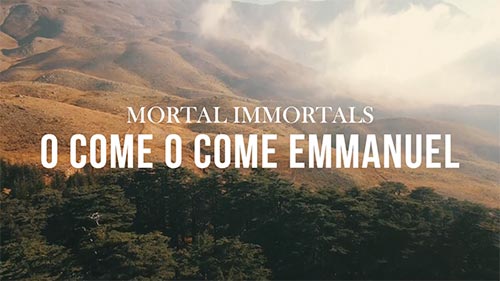
Recent Comments